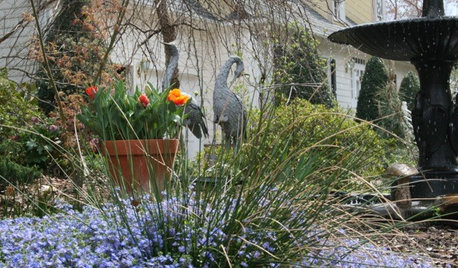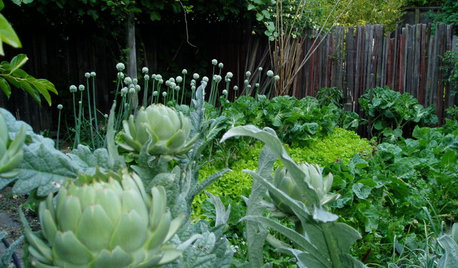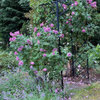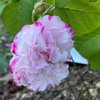My resolve to garden organically was sorely tested....
rubystar
19 years ago
Related Stories

SOUTHEAST GARDENINGSoutheast Gardener's January Checklist
Resolve to see your garden with fresh eyes this year while you plant, plan and take care of necessary maintenance
Full Story
EDIBLE GARDENSHow to Grow Your Own Sweet Summer Crops
This guide will help any gardener get started on growing the freshest warm-season veggies and berries for summer
Full Story
GARDENING FOR BUTTERFLIES3 Ways Native Plants Make Gardening So Much Better
You probably know about the lower maintenance. But native plants' other benefits go far beyond a little less watering and weeding
Full Story
GARDENING GUIDESGardening Solutions for Heavy Clay Soils
What’s a gardener to do with soil that’s easily compacted and has poor drainage? Find out here
Full Story
FRONT YARD IDEAS10 Ideas for a Front-Yard Edible Garden Your Neighbors Will Love
Choosing attractive, well-mannered plants and sharing the bounty will go a long way toward keeping the peace
Full Story
LIFEHow to Build Your Housekeeping Muscle
Train yourself to clean and organize until the routine becomes second nature with this step-by-step approach
Full Story
STORAGE5 Tips for Lightening Your Closet’s Load
Create more space for clothes that make you look and feel good by learning to let go
Full Story
EARTH DAYHow to Design a Garden for Native Bees
Create a garden that not only looks beautiful but also nurtures native bees — and helps other wildlife in the process
Full Story
EARTH DAY5 Ideas for a More Earth-Friendly Garden
Consider increasing the size of garden beds, filtering rainwater and using plants to reduce energy use
Full Story
HOUZZ TOURSMy Houzz: Contemporary Home Hugs a Central Courtyard
An architect's Salt Lake City home celebrates outdoor living in a beautiful blend of modern and organic styles
Full StorySponsored
More Discussions










althea_gw
rubystarOriginal Author
Related Professionals
Lyons Landscape Architects & Landscape Designers · Saint Louis Park Landscape Architects & Landscape Designers · Manchester Landscape Contractors · Tempe Landscape Contractors · Wilmington Landscape Contractors · Aberdeen Landscape Contractors · Azalea Park Landscape Contractors · Bound Brook Landscape Contractors · Cincinnati Landscape Contractors · Emmaus Landscape Contractors · Gainesville Landscape Contractors · Kettering Landscape Contractors · Milford Landscape Contractors · Norwalk Landscape Contractors · Pikesville Landscape Contractorswildrose1996
habitat_gardener
rubystarOriginal Author
RosariumRob
althea_gw
ChrisA_MA
CapeHeart
moonwolf23
catchef
rubystarOriginal Author